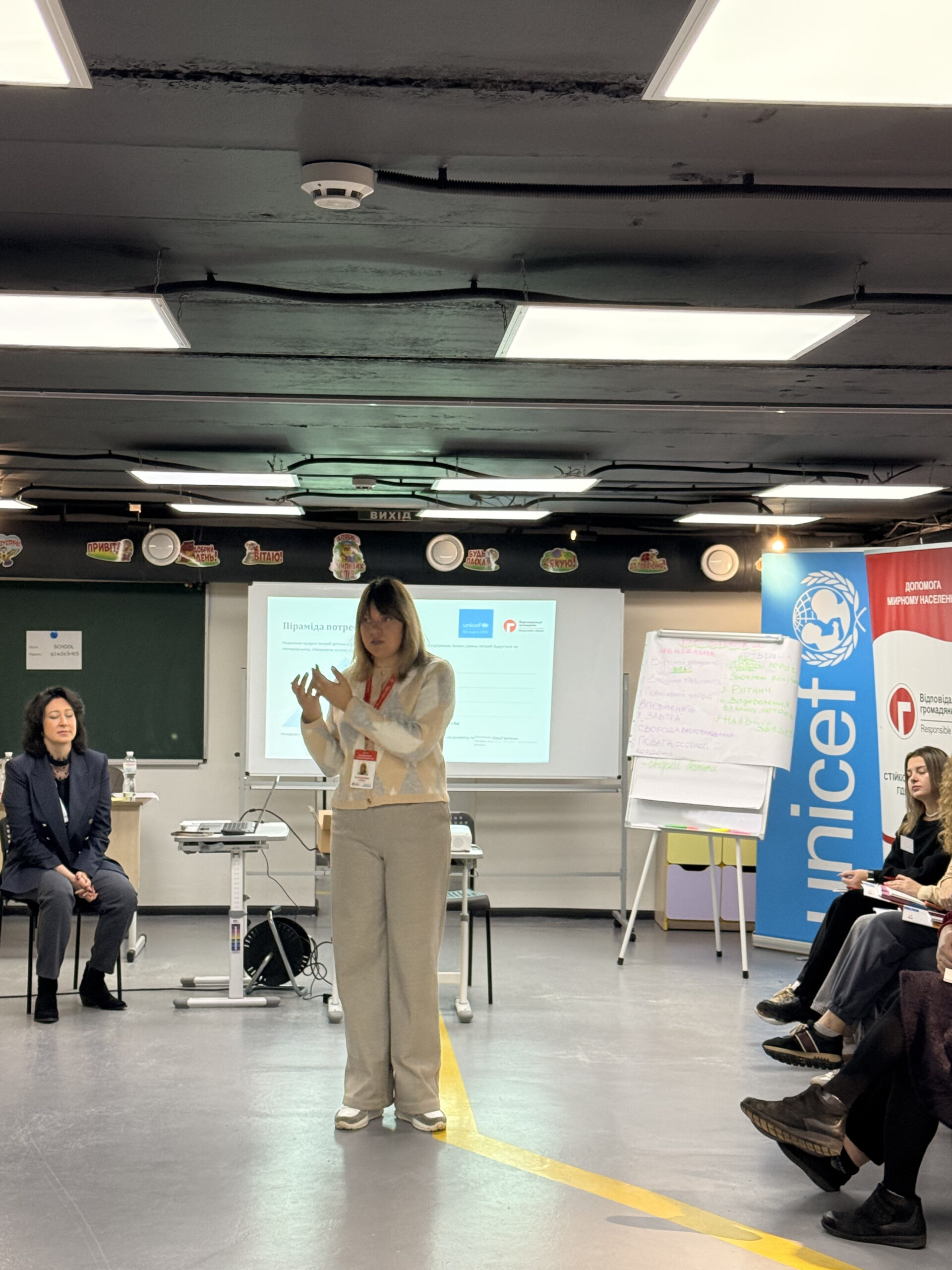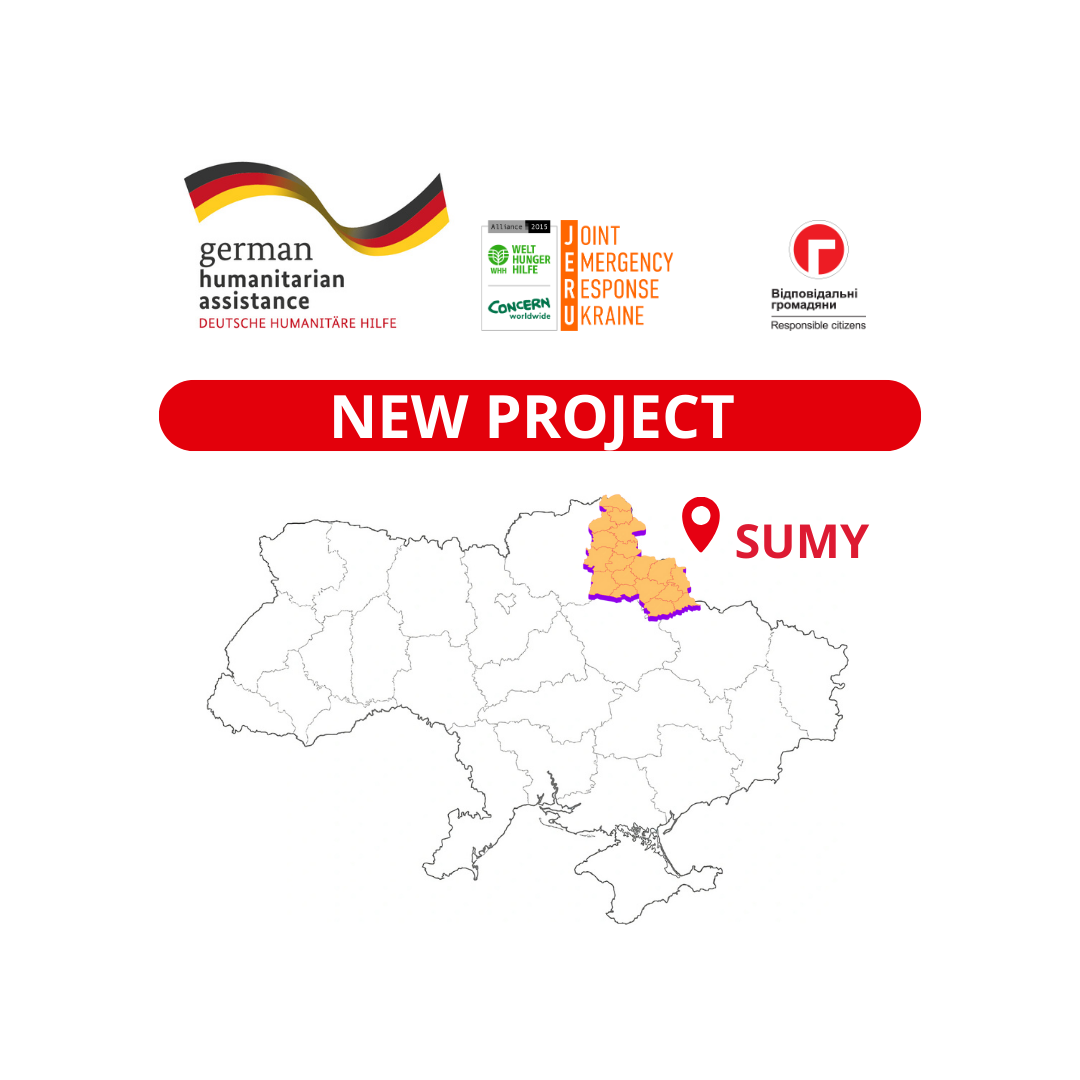“We left home but didn’t find safety”: what a survey of evacuees from Donetsk region reveals
An analysis of evacuation experiences that should shape new approaches to supporting internally displaced persons in Ukraine.
The NGO “Responsible Citizens,” together with its partners, conducted an extensive survey among residents of the Myrnohrad and Pokrovsk communities in Donetsk Oblast who were forced to flee their homes in the fall of 2024. The study involved 466 individuals who had received assistance from the organization, aiming not just to gather facts but to amplify voices—those often lost in the noise of statistics.
“Evacuation is not just logistics. It’s a painful rupture of life. To be truly helpful, we must understand not only where people are going but what they’re losing and what they’re seeking,” says Enrique Menendez, Director of Projects and Programs at “Responsible Citizens.”
Where and How People Are Leaving
82% of respondents from the Pokrovsk community and 69% from Myrnohrad left their homes within three months of the evacuation announcement. Most headed to Dnipropetrovsk Oblast, especially those with children. At the same time, nearly half had relocated only once since 2022, indicating a depletion of resources for new beginnings.
Challenges During Evacuation
57% of respondents faced difficulties. The most common issues included long travel times, overcrowded transportation, and a lack of accommodations for people with disabilities.
Among specific problems, respondents without children more frequently (18%) noted the absence of conditions for evacuating people with disabilities. Given that one-third of households include individuals with disabilities, this issue demands urgent attention.
Only 4% used evacuation transport provided by authorities. The rest managed on their own.
Housing and Adaptation
After evacuation, 47% of respondents live in houses or parts of houses, 45% in apartments, and only 5% in temporary shelters. Myrnohrad residents more often choose apartments, while those from Pokrovsk opt for private houses, possibly due to housing availability in different regions.
However, adaptation comes with significant challenges:
- 56% consider rent too expensive;
- 27% lack funds for basic needs (food, medicine, clothing);
- 23% face a shortage of rental options;
- 21% cannot find work.
“Without housing and stable income, there’s no integration—only temporariness, in which thousands who fled their homes are stuck. War creates displaced persons, but it’s up to society to build new foundations and conditions for families to adapt to new lives,” Menendez adds.
Needs in New Locations
The most pressing needs of evacuees include:
- Rent payment (51%, especially in Myrnohrad—63%);
- Utility bills (44%, more often in Myrnohrad—62%);
- Food (35%);
- Medicine (30%, especially among those without children—50%);
- Hygiene products (27%, more often in Pokrovsk—36%).
These findings highlight the need for targeted financial and material support for IDPs, as well as the development of employment programs.
What About Those Who Stayed?
Among those still in Pokrovsk and Myrnohrad, only 19% plan to leave. 52% cited direct risks from hostilities as the main condition for evacuation, but 7% say they won’t leave under any circumstances. They need not only informational but also psychological support.
Conclusions
“This study isn’t just numbers—it’s the stories of people seeking safety, stability, and a chance to start anew amid war. The data shows that most evacuees face numerous barriers. Yet we also see their resilience: they’re ready to integrate if given support. Without stronger coordination between the state, communities, and international partners, we risk leaving thousands of families in uncertainty. Society must unite now—from creating affordable housing to developing employment and psychological support programs. We call on authorities, journalists, and media not only to pay attention to these findings but to become drivers of change, working together to create effective programs for IDPs. Every step in this direction is a chance to restore dignity and hope,” concludes Enrique Menendez, Director of Projects and Programs at “Responsible Citizens.”
📥 Download the full report [link]
Більше новин
-
 How support helps Yulia and her children start a new life
How support helps Yulia and her children start a new lifeYulia and her four children were evacuated from the occupied city of Dniprorudne. The forced relocation changed everything— a new city, no job, and an uncertain future. "I mostly try to manage on my own," Yulia shares. She cannot leave her youngest child unattended, and kindergartens are not operating, making it impossible to return to work for now.
-
 St. Nicholas Day in safe spaces: warmth, creativity, and support for families
St. Nicholas Day in safe spaces: warmth, creativity, and support for familiesIf it’s a holiday, it’s only in child-friendly spaces! Festive events dedicated to St. Nicholas Day took place in Kharkiv, Zaporizhzhia, and Dnipropetrovsk regions!...
-
 Alla Maslakhova, Project Coordinator of NGO “Responsible Citizens,” in a Special Edition of the “SPIU Podcast
Alla Maslakhova, Project Coordinator of NGO “Responsible Citizens,” in a Special Edition of the “SPIU PodcastWhat does responsibility look like in practice? What are the current trends in the civic sector? How do we provide support in frontline areas, what lessons have we ...
-
 “The results of our research show the deepening humanitarian challenges,” – Enrique Menendez
“The results of our research show the deepening humanitarian challenges,” – Enrique MenendezDonetsk, Luhansk, Kharkiv, Zaporizhzhia — these are the main regions where people who participated in our online survey live.
-
 Team-Based Care: How Professionals Learn to See a Child’s Needs
Team-Based Care: How Professionals Learn to See a Child’s NeedsA training session titled “Team-Based Care in Assessing a Child’s Needs” was held in Zaporizhzhia, organized by the NGO Responsible Citizens within the UNICEF Ukraine project.
-
 Children’s Happiness Day Celebrated in Pivdenne
Children’s Happiness Day Celebrated in PivdenneIn Pivdenne, Kharkiv region, even in difficult times, the community finds the strength to celebrate joy. During the City Day celebrations, we made sure that even the youngest residents felt cared for, valued, and protected.
-
 Mobile support in action: The story of a new psychologist in our team
Mobile support in action: The story of a new psychologist in our teamFor our team, it’s a great responsibility when people come to us for their first professional experience. Especially when it’s a conscious decision to change career...
-
 Responsible Citizens NGO is launching activities within the framework of a new partnership with JERU – a joint initiative of the international organizations Welthungerhilfe and Concern Worldwide
Responsible Citizens NGO is launching activities within the framework of a new partnership with JERU – a joint initiative of the international organizations Welthungerhilfe and Concern WorldwideThe project is funded by the Federal Foreign Office of Germany and implemented in Sumy region.